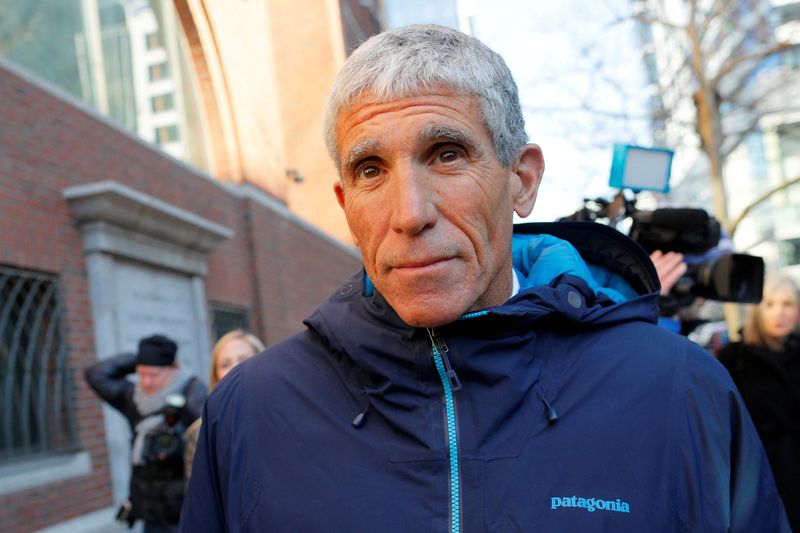By Nate Raymond
BOSTON (Reuters) - Federal prosecutors on Wednesday asked a judge to sentence the mastermind of the largest U.S. college admissions fraud scheme ever uncovered to six years in prison after he helped them secure the convictions of dozens of wealthy parents including Hollywood celebrities.
Prosecutors made the recommendation a week before William "Rick" Singer, the college admissions consultant at the center of the "Operation Varsity Blues" investigation, goes before a judge for sentencing after pleading guilty in 2019.
Singer admitted to facilitating cheating on college entrance exams and funneling money from wealthy parents he counted as clients to corrupt coaches and athletics officials to secure the admission of their children as fake athletic recruits.
His own lawyers recommended that Singer receive just 12 months of home confinement, or if incarceration is deemed necessary, six months in prison, saying his decision to cooperate was key to helping prosecutors build many of the cases they brought.
But prosecutors told U.S. District Judge Rya Zobel, in Boston, that while Singer's "unprecedented" cooperation deserved credit, his crimes warranted the longest sentence of any "Varsity Blues" defendant.
His expected sentencing on Jan. 4 will cap an investigation that has resulted in the conviction of more than 50 people, including actors Lori Loughlin and Felicity Huffman, two of the many wealthy parents Singer counted as clients.
Prosecutors said Singer, operating through his California-based college admissions counseling service The Key and a related charity, took in more than $25 million from his clients.
They said he paid out more than $7 million to bribe coaches and administrators at schools including Georgetown University, the University of Southern California, Yale University and Stanford University.

Singer, who now lives in a Florida trailer park, in his own filing wrote that he lost everything by "ignoring what was morally, ethically, and legally right in favor of winning what I perceived was the college admissions 'game.'"
"It is not lost on me that my crimes impacted not just the students who were part of my scheme but also all of those who felt like they didn't get the same chance to go to the school of their choice because they couldn't pay or didn't cheat their way in," Singer wrote.